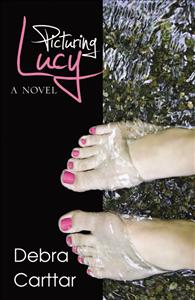By: Dan Smith, CEO of Smith Publicity
 What is 6" by 9," usually weighs roughly one pound, and is giving an increasing number of business leaders an advantage over the competition? A book.
What is 6" by 9," usually weighs roughly one pound, and is giving an increasing number of business leaders an advantage over the competition? A book.
The use of 'the book as a business card' has added a new and powerful tool to marketing arsenals to build credibility and attract new business opportunities. Experts, consultants, and professionals from various fields are putting their knowledge into professionally-published books–a calling card sure to make a bigger and more meaningful impression than the traditional business card.
Marketing—especially for businesspeople in consulting and service industries—is about credibility, and a book establishes a person as someone who has reached a level of expertise. It allows readers (potential clients) to learn more about their philosophies, thought process and successful case studies, much more so than a simple brochure. And, you don't have to be published by a major house to achieve and utilize this credibility. Authors are proving that it doesn't matter if a book is self-published -- the end result in terms of marketing benefits is the same.
“Call it a golden business card, but the reality is having a book in print is a phenomenal door opener,” says Joe Takash, author of Results Through Relationships: Building Trust, Performance and Profit Through People. “I’ve been speaking professionally for twenty years and have been fortunate to have achieved nice results with clients prior to the book, but the fact that I have been published has launched bigger opportunities and helped justified raising my fees.”
I recently spoke to a highly credentialed, successful consultant. He was asked by a corporation to prepare a proposal for an all day seminar. He was told his proposal looked great, but they ultimately decided to go with someone else simply because they were impressed the competitor was a “published author,” and one who charged a significantly higher fee. The only real difference was one had a book. This consultant is in now in the process of self-publishing a book as he sees the benefits and new opportunities this will bring his business.
Who can benefit from the book-as-business card?
-
Consultants, specializing in virtually all trades
-
Service-providing business owners, from insurance companies and home security experts to psychologists and financial planners
-
Self-help professionals, motivational speakers, etc.
-
Non-profit organization leaders
Having a book, however, is but one element of the book-as-marketing-tool strategy. If an author/expert secures media attention, his or her credibility is enhanced even further. When a prospective customer visits a website or reads a company brochure showing TV or radio interviews, or features from newspapers and magazines, it showcases this person is a trustworthy expert in his or her field.
Businesspeople can announce to their prospective clients that they are important enough, credible enough, and interesting enough to have the media interview or feature them. This is marketing power in its purest form.
“My book was a major launching pad,” explains Bill Losey, author of Retire In A Weekend! The Baby Boomer’s Guide To Making Work Optional. “It has positioned me as a thought-leader nationwide and has led to speaking opportunities and an interview with the number one guy at a national television network. The book is attractive to the media and being an author has totally separated me from the competition and more than half of my new client inquiries are coming from out of state. I've gone from relative obscurity to the national spotlight in one year. I wish I had written my book years earlier.”
What makes all of this possible is the book. While non-authors can get media coverage, most of the people you hear on radio, see on TV, or read about in newspapers and magazines are in fact authors. The book, again, acts as the credibility attracting the media.
When you crunch your marketing budget numbers, consider this: A four color brochure may cost many thousands of dollars to create, design, and print. Add in mailing costs and other related expenses, and you can easily exceed $15,000. Today, thanks to the print-on-demand and the self-publishing revolution, you can have a professionally designed and produced book for as little as $1,000.
Brochures and collateral materials tell prospective clients what you can do, a book proves you know what you're doing—and give you the space to explain your ideas. Add in the media coverage, and you then have other people (the media) proving you are an expert because they thought enough of you to interview or write about you.
So, bottom line: As the adage goes, “write about what you know.” Write about your business, your tradecraft; and teach others, via a book, the most essential elements of the service you provide. Put in the printed word that which you do best. When your book is printed and available for purchase, promote it, get media coverage; hand it out at presentations or talks; give it away, and customers will come. You can't be complacent, however. A book does nothing for you if you don't market it and make others aware of it. Use it, and get absolute maximum value from your marketing investment.
You've become an author. You’ve proven you are an expert. While the world won't fall at your feet because you've written a book, you will have created an invaluable advantage over your competition.
---
Dan Smith is CEO of Smith Publicity, Inc., a full service book promotion and public relations agency with offices in New Jersey, New York City, Los Angeles, Toronto and London. Smith Publicity has implemented more than 1,000 promotional campaigns. Clients of Smith Publicity have appeared on virtually every major radio and television show, and been featured in top publications across the world. For more information please visit www.smithpublicity.com.




